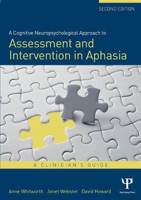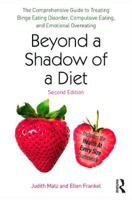Cookies help us deliver our services. By using our services, you agree to our use of cookies.
Shopping cart
Search
Therapy & therapeutics
2 Minutes to Sleep: Everyday Self-C
€16.25
Prime yourself for deep, restorative sleep with practical two-minute exercises designed to fit around your life.
A Cognitive Neuropsychological Approach to Assessment and Intervention in Aphasia: A clinician's guide
€77.50
This is the second edition of the popular volume used by clinicians and students in the assessment and intervention of aphasia.
Addiction Debates. Hot Topics from Policy to Practice
€61.25
Addiction Debates explores the tumultuous landscape of addiction research, policy and practice. Covering all the 'hot topics' of the day in a balanced and informative manner, Comiskey provides international perspectives on each topic, stimulating debate and discussion via the different approaches taken globally.
Advanced Nutrition and Dietetics in Obesity
€56.95
This addition to the British Dietetic Association Advanced Nutrition and Dietetics book series is written for clinicians and researchers who work with any aspect of obesity and its comorbid conditions.
Beyond a Shadow of a Diet: The Comprehensive Guide to Treating Binge Eating Disorder, Compulsive Eating, and Emotional Overeating
€50.00
Beyond a Shadow of a Diet is the primary reference in the field. It provides the new criteria to make a Binge Eating Disorder diagnosis, in compliance with the DSM 5, and contains information on neuroscience and mindfulness, websites, social networking tools, and professional organizations.
Beyond Aphasia: Therapies For Living With Communication Disability
€43.19
Focuses on therapeutic techniques developed from a social model approach to disability and learning to live with difference. This book describes theories, activities and methods of implementation developed from the work of Connect with people with long term aphasia. It is suitable for those who work with people with chronic disabilities.
Binge Eating Disorder: The Journey to Recovery and Beyond
€36.25
Binge Eating Disorder: The Journey to Recovery and Beyond, written by a clinician and an advocate who have personally struggled with BED, illuminates the experience of BED from the patient perspective while also exploring the disorder's etiological roots and addressing the components of treatment that are necessary for long-term recovery.
Biochemical Imbalances in Disease: A Practitioner's Handbook
€62.50
Biochemical imbalances caused by nutritional deficiencies are a contributory factor in chronic illnesses such as cardiovascular disease, diabetes, auto-immune conditions and cancer. This handbook for practitioners explains how to identify and treat such biochemical imbalances in order to better understand and manage a patient's ill-health.










